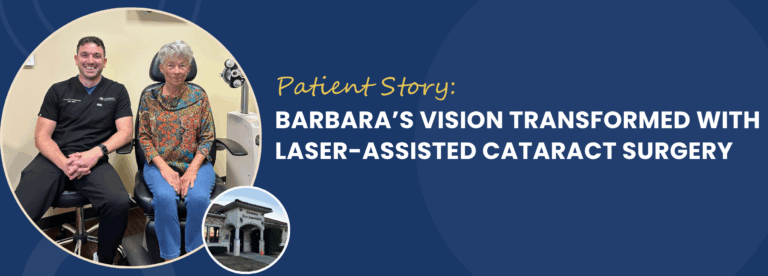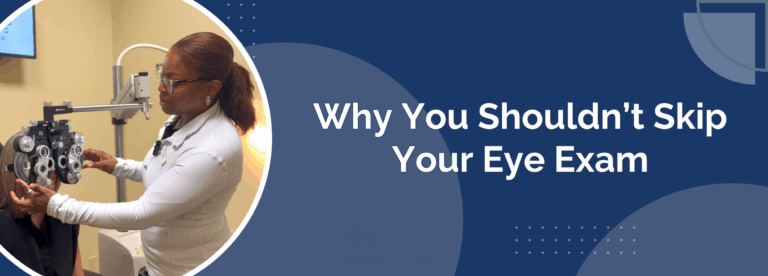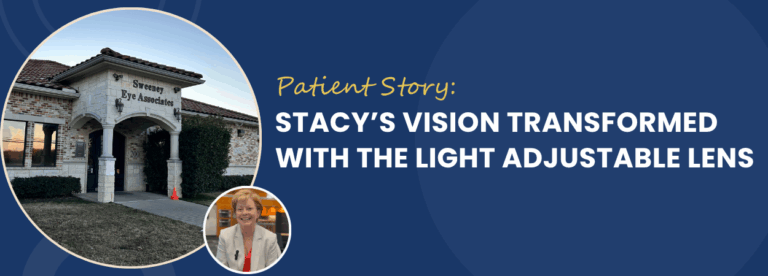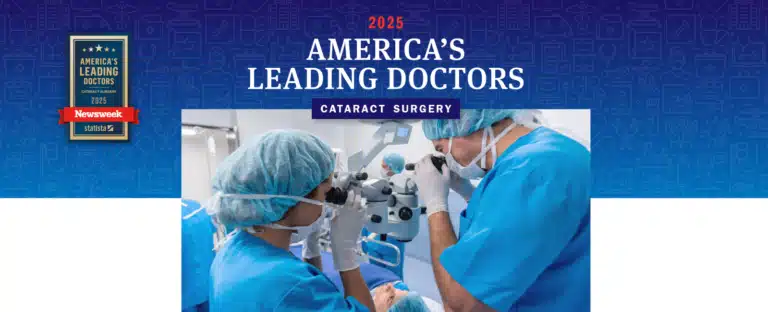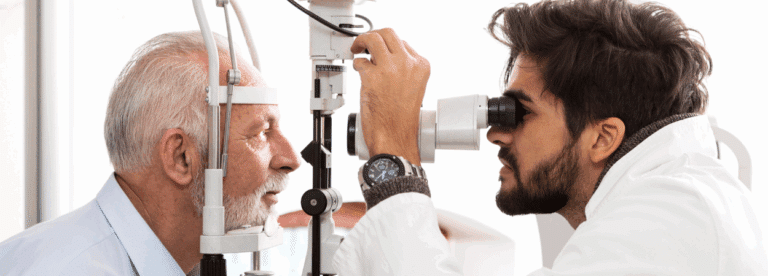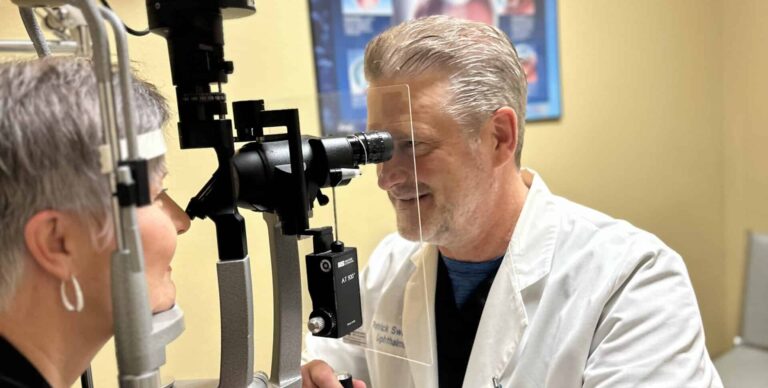How Laser Cataract Surgery Helped Barbara Regain Her Vision and Her Confidence
Cataracts,Laser Assisted Surgery
After years of wearing glasses, Barbara began to notice that her world was becoming dimmer. Street signs were harder to read, colors lost their vibrancy, and even watching TV required turning the volume down and the captions up. Over six to eight months, her vision steadily deteriorated until she knew it was time to take…
Read MoreWhy You Shouldn’t Skip Your Eye Exam, Even If Your Vision Feels Fine
Cataracts,Diabetic Retinopathy,General Eye Care,Glaucoma
Seeing Clearly Doesn’t Always Mean Seeing Healthy It’s easy to think that if your vision feels fine, your eyes must be healthy. But many eye conditions—including cataracts, glaucoma, and diabetic eye disease—can develop without noticeable symptoms in their early stages. At Sweeney Eye Associates, serving Sunnyvale, Richardson, and nearby Texas communities, we remind our patients…
Read MoreStacy’s Vision Transformed With the Light Adjustable Lens
Cataracts,Light Adjustable Lens,Refractive Lens Exchange,Vision Correction
What Are Cataracts? Cataracts occur when the eye’s natural lens becomes cloudy, causing vision to blur, dim, or distort. They often develop with age, but people with strong prescriptions can be affected earlier. The only way to restore clarity once cataracts progress is through surgery. A New Era in Vision Correction At Sweeney Eye Associates,…
Read MoreChoosing the Right Lens for Cataract Surgery
Cataracts,Laser Assisted Surgery,Light Adjustable Lens,Premium Lens Options
What Patients at Sweeney Eye Associates Should Know Your lens choice will shape how you see the world for the rest of your life. At Sweeney Eye Associates in North Dallas, our cataract surgeons — Dr. Patrick Sweeney and Dr. Vincent Venincasa — help you navigate today’s advanced lens options so your choice fits your…
Read MoreCan the Sun Make Cataracts Worse?
Cataracts,Comprehensive Eye,Uncategorized
The North Texas sun may brighten your day, but it could also be making your cataracts worse. It’s important for our patients to know that UV exposure is one of the few preventable factors known to speed up cataract progression, particularly in sunny climates like ours. If you’re waiting to have cataract surgery, you should…
Read MoreDr. Sweeney Named To America’s Leading Doctors for 2025
Cataracts,Expert Surgeon,Uncategorized
Patrick Sweeney, M.D. | Top Cataract Surgeon We are thrilled to share some exciting news from all of us at Sweeney Eye Associates: Dr. Patrick Sweeney has been named one of America’s Leading Doctors for 2025 in the cataract category by Newsweek and Statista! This national recognition honors physicians who demonstrate outstanding clinical expertise, patient care, and innovation in their…
Read MoreCataracts: When to Monitor and When It’s Time for Surgery
Not All Cataracts Need Surgery—Here’s How to Know What’s Right for You If you’ve been told you have a cataract, you might feel uncertain about what comes next. At Sweeney Eye Associates, with convenient locations in both Richardson and Sunnyvale, Texas, we want to make one thing clear: not all cataracts require surgery right away….
Read MoreCataract Awareness Month 2025: What’s New and Why the Right Care Matters
Cataracts,Laser Assisted Surgery,Light Adjustable Lens,Premium Lens Options
Cataract surgery has advanced dramatically in the last decade. It’s one of the most common, and successful, procedures in the world today. And yet, many people still have outdated ideas about what cataracts are, how surgery and recovery works, and when it should happen. At Sweeney Eye Associates, with offices in Sunnyvale and Richardson, we’re…
Read MoreUnderstanding Secondary Cataracts and the YAG Laser Treatment
Experiencing Blurry Vision After Cataract Surgery? It Might Be a Normal Change — and It’s Easy to Treat If you’ve had cataract surgery and are now noticing blurry vision again, or your eye doctor mentioned something called a YAG laser procedure, there’s no need to worry. This is not uncommon, and in many cases, it’s…
Read MorePrecision You Can See: Femtosecond Laser-Assisted Cataract Surgery at Sweeney Eye Associates
Cataracts,Laser Assisted Surgery,Uncategorized
At Sweeney Eye Associates, we understand that choosing cataract surgery is a big decision—and we’re proud to offer one of the most advanced options available today: Femtosecond Laser-Assisted Cataract Surgery (FLACS). This breakthrough technology adds a new level of precision, safety, and customization to the cataract surgery experience. What Is FLACS? Femtosecond Laser-Assisted Cataract Surgery…
Read More
